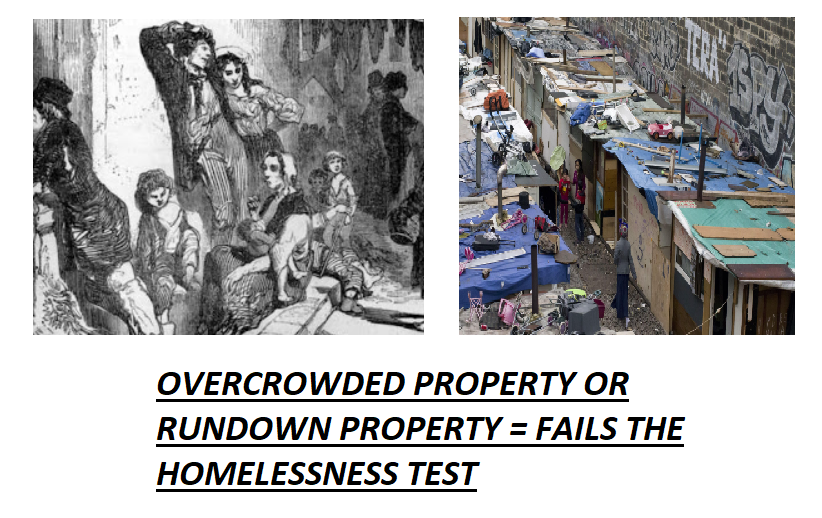R v Hillingdon LBC, ex p. Puhlhofer [1986] UKHL 1
Citation:R v Hillingdon LBC, ex p. Puhlhofer [1986] UKHL 1
Rule of thumb:What is the test for homelessness? A person actually has to have no property to live in. Having a property which is too small is not the test of homelessness.
Background facts:
The facts of this case were that Pulhofer was part of a family who were living in a one-room home, which had no cooking or laundry facilities. Pulhofer’s homelessness application was refused on the grounds that he was not homeless.
Judgment:
The Court affirmed that it is a fairly strict test for a person being considered homeless and Pulhofer was technically not homeless - a person in these circumstances is not deemed to be homeless and their application for Council housing can be refused.

Ratio-decidendi:
‘The Housing (Homeless Persons) Act 1977 is a part of the large volume of public housing legislation based on the Housing Act 1957 (now Part III of the Housing Act 1985 shortly to come into force). It has generated a mass of litigation, at the receiving end of which are local authorities endeavouring to cope with intractable housing problems and to balance competing claims to limited housing resources... It is an Act to assist persons who are homeless, not an Act to provide them with homes... My Lords, I am troubled at the prolific use of judicial review for the purpose of challenging the performance by local authorities of their functions under the Act. Parliament intended the local authority to be the judge of fact. The Act abounds with the formula when, or if, the housing authority are satisfied as to this, or that, or have reason to believe this, or that. Although the action or inaction of a local authority is clearly susceptible to judicial review where they have misconstrued the Act, or abused their powers or otherwise acted perversely, I think that great restraint should be exercised in giving leave to proceed by judicial review. The plight of the homeless is a desperate one, and the plight of the applicants in the present case commands the deepest sympathy. But it is not, in my opinion, appropriate that the remedy of judicial review, which is a discretionary remedy, should be made use of to monitor the actions of local authorities under the Act save in the exceptional case. The ground upon which the courts will review the exercise of an administrative discretion is abuse of power - e.g. bad faith, a mistake in construing the limits of the power, a procedural irregularity, or unreasonableness in the Wednesbury sense - unreasonableness verging on an absurdity: see the speech of Lord Scarman in Reg, v. Secretary of State for the Environment. Ex parte Nottinghamshire County Council [1986] 2 W.L.R. 1, 5. Where the existence or non-existence of a fact is left to the judgment and discretion of a public body and that fact involves a broad spectrum ranging from the obvious to the debatable to the just conceivable, it is the duty of the court to leave the decision of that fact to the public body to whom Parliament has entrusted the decision-making power save in a case where it is obvious that the public body, consciously or unconsciously, are acting perversely’. Lord Brightman
Warning: This is not professional legal advice. This is not professional legal education advice. Please obtain professional guidance before embarking on any legal course of action. This is just an interpretation of a Judgment by persons of legal insight & varying levels of legal specialism, experience & expertise. Please read the Judgment yourself and form your own interpretation of it with professional assistance.

